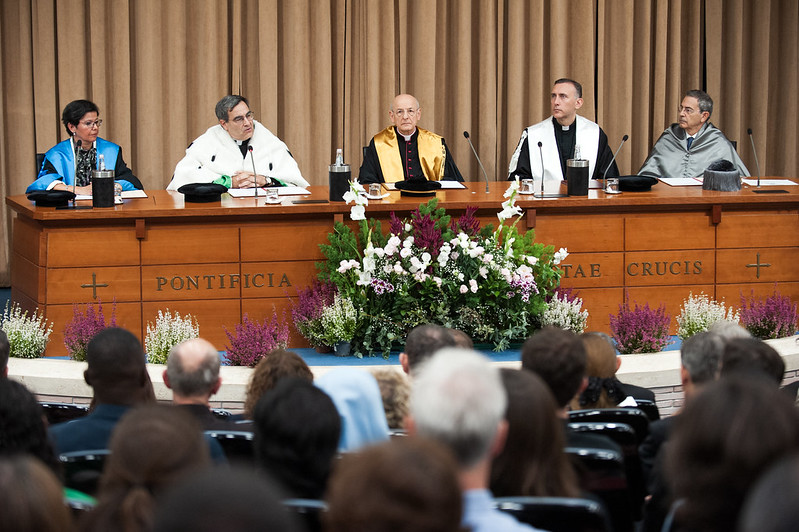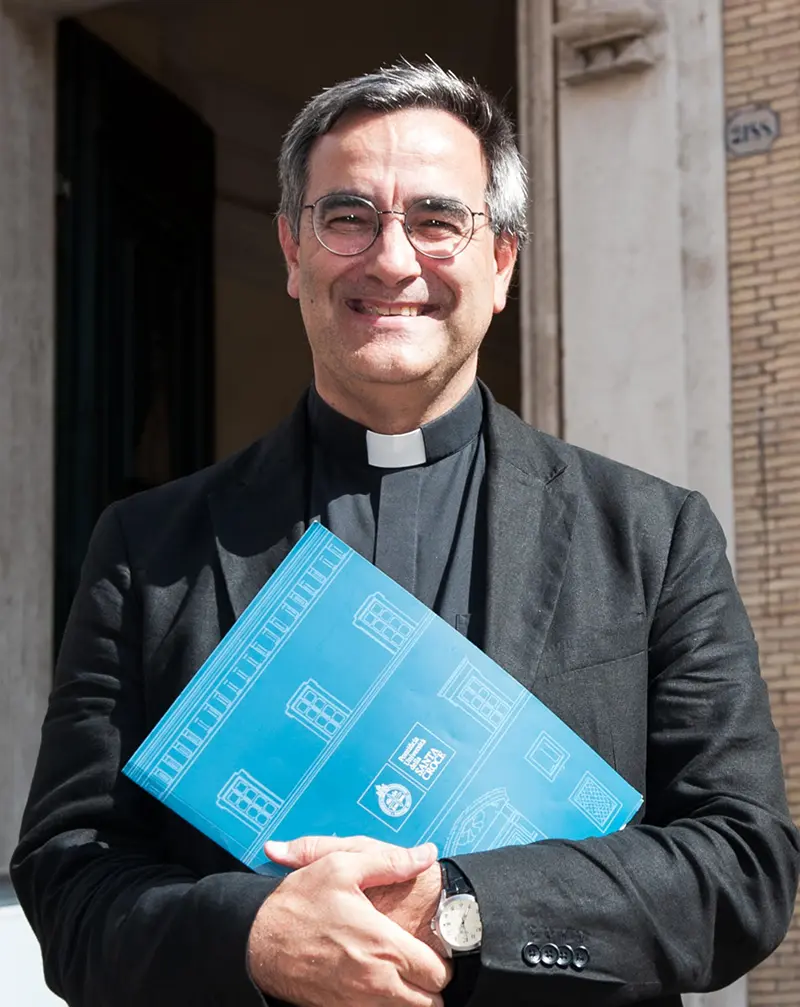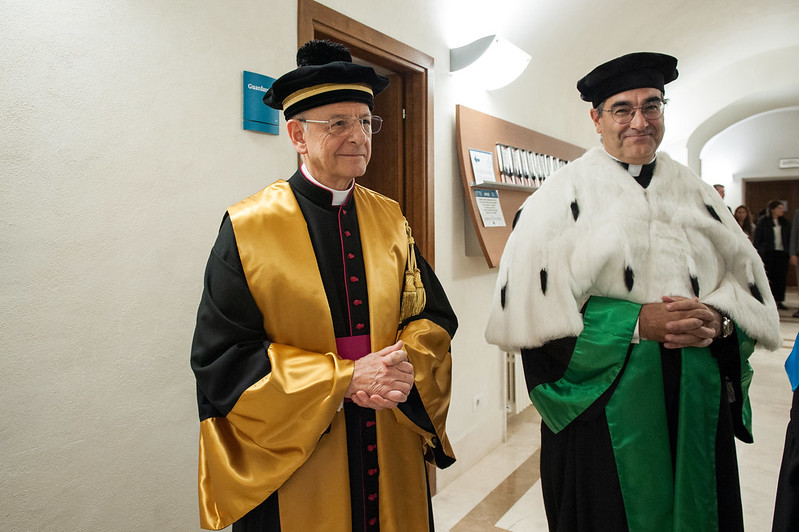The Pontifical University of the Holy Cross is commemorating its 40th year of dedicated service to the Church, having educated over 15,000 students from around the globe. The newly appointed rector, Don Fernando Puig, sheds light on the university’s accomplishments, hurdles, and its pivotal role in evangelization.
Santa Croce Marks 40 Years of Excellence
What milestones has this university achieved in its service to the Church and the Holy Father during this period?
First and foremost, I extend my gratitude to the CARF Foundation – to each individual who contributes to the Foundation – for their unwavering support, prayers, and motivation over the past four decades. The existence of Holy Cross is a result of the collective efforts of those who envisioned its future with great faith, be it the seminarian seeking formation or the priest striving to fulfill his vocation in unity with his bishop.
Furthermore, an increasing number of lay individuals seek our guidance for their roles as catalysts of positive change in the world. This attests to the fact that thousands value the presence of Holy Cross. Those of us involved in its operation are forever indebted.
While numbers can be detached and incomplete, hosting 15,000 students from 1,300 dioceses globally and witnessing our instructors publish 1,800 books are achievements that cannot be improvised. However, the true impact of their work in evangelization will only be fully realized at the culmination of a student’s, teacher’s, or employee’s journey at Holy Cross.


Navigating Challenges at Santa Croce
What objectives and obstacles lie ahead for the next quadrennium?
Our goals are fluid, not predetermined. We remain attuned to the evangelization needs, ensuring that our activities – from fostering education to instilling critical thinking to encouraging faith propagation – progress steadily, with a broad perspective and without haste.
We draw inspiration from our predecessors, some of whom are revered as saints, and adhere to a fundamental principle that defined them: hard work, unity, and personal and professional growth for all individuals associated with Santa Croce.
Has the Pope articulated any specific expectations for your leadership at PUSC?
While I am yet to personally meet the Pope following my appointment, I envision him echoing his familiar “andate avanti” (“keep going”) sentiment, a call he extends to numerous individuals. For me, these words translate to “Duc in altum”! (“into the deep”), a cry that resonates with the ethos of our university.
As per Don Luis Navarro, the former rector, PUSC prides itself on being globally inclusive. How can we amplify this message to illuminate the university’s pivotal role in the universal Church?
Don Luis emphasized that our esteemed alumni are the best advocates for our institution. The myriad priests, seminarians, religious figures, and lay persons from diverse backgrounds and congregations who study at Santa Croce embody the essence of the university through their selfless service.
While we actively promote our endeavors like any educational entity, the essence of our message is reinforced through persistent dedication and hard work.
PUSC’s Contribution to CRUIPRO and Lessons from Peers
Three of my predecessors have overseen CRUIPRO with utmost dedication and vigor. Our aim is to contribute earnestly to this collective endeavor, fostering collaboration instead of competition. As rectors, we foster camaraderie, share experiences, and offer mutual support.


Don Fernando Puig, rector at the University of Santa Croce
Exploring Recent Changes in Canon Law and Roman Curia
The intricacies of the Roman Curia, a venerable institution with a rich history, often create a misleading narrative. Understanding its dynamics in the modern era is crucial as institutions adapt to contemporary challenges.
While comprehending the Roman Curia is valuable, the essence of the Church resides in its diverse congregations and believers, each embodying the sacramental grace uniquely. The ministry of unity symbolized by the Pope justifies the existence of the Curia.


Embracing Gender Equality and Pastoral Canon Law
The Pope’s emphasis on gender equality in governance roles reflects a progressive shift within the Roman Curia. Recognizing competence over gender in appointments is a positive step towards inclusivity and equality.
Efforts to streamline processes like minor protection and marriage annulments underscore the Church’s commitment to upholding justice and mercy. These reforms aim to facilitate a holistic approach to holiness, fostering community engagement and personal growth.




